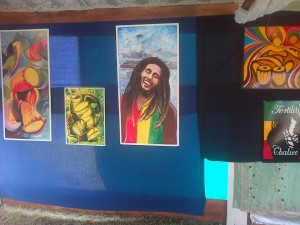
The Linden Reparations Committee is joining with Guyana and the rest of the Caribbean in demanding that reparations be paid to descendants of those who were enslaved by European governments during the slave trade.
On Saturday, the Guyana Reparations Committee (GRC) joined their Linden counterparts and hosted its first outreach conference in the community, as part of the community’s celebration of the Linden Town Week of activities. The event was held at the reparations village, which is currently set up in Linden, and featured speeches from African Cultural and Development Association Chairman Eric Phillips and Region 10 Chairman Sharma Solomon, among other dignitaries.
According to the GRC, “international law provides that the economic and social system referred to as chattel slavery – the legal denial of persons’ rights to human identity and the control over their bodies – was a crime against humanity subject to reparatory justice…Reparation seeks to heal, atone and bring closure to the human tragedy of mass slavery.”
Currently, all National Reparations Committees report through the Culture Ministry in their respective countries, through Cabinet, to the Head of State. Guyana is on board with compiling its reparations report.
Caricom has since established a 10 Point Action Plan for discussion, in the areas of: a formal apology, repatriation, an indigenous Peoples Development Plan, cultural institutions, an African knowledge programme, addressing the public health crisis, illiteracy eradication, psychological rehabilitation, technology transfer, and debt cancellation.
Repairing the damage
Jonathan Adams, who is a member of the National Reparations Committee as well as the Linden Reparations Committee, said the body is working assiduously to achieve justice in the fight for reparations. According to him, in an effort to obtain information for the reparatory cause, the local committees recently made contact with lecturers from the University of Central Holland as well as the University of Central London.
“The time has come for us to repair that shattered African culture. Technically put, if you have a glass and it falls and break and you like that glass, you’re going to pick it up and repair it. The African people’s culture has been broken, has been shattered, and Caricom is saying it’s time for us to repair that,” he stated.



